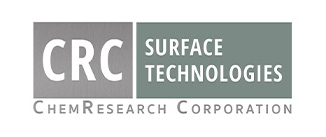
01 Mar Benefits of Electroless Nickel vs. Nickel Plating
Different forms of nickel plating serve different manufacturing needs. Traditional electroless nickel plating and common nickel plating produce separate results that are not necessarily obvious to those unfamiliar with the plating process. Each technique offers specific benefits based on chemical composition and production method.
Here at CRC, we’re proud to offer our partners both electroless nickel and nickel plating services. As a metal finishing contractor, we provide reliable, in-house coating services and work diligently to analyze each client’s unique needs and recommend the most beneficial process for their products.
Benefits of Electroless Nickel Plating
Also known as electroless nickel-phosphorus plating, this process is an autocatalytic process that deposits an even nickel-phosphorous alloy onto a substrate. This process does not require an electric current to pass through the bath and substrate. Instead, it relies upon a purely chemical autocatalytic process.
Here are some of the benefits of electroless nickel plating process:
- Resistance to corrosion, oxidation, and wear
- Independent of power supplies
- Creates even deposits, regardless of workpiece geometry
- Usable on non-conductive surfaces
Manufacturers prefer electroless nickel plating for high precision metal finishing applications because of its uniform depositing, which reduces the need for after-process shaping. In particular, the aerospace and defense industries use electroless nickel plating for components that have hard-to-reach surfaces. The bath submersion and autocatalytic process will ensure that each piece receives the precise, even coating necessary for critical components.
Benefits of Nickel Plating
Also known as nickel electroplating, nickel plating is an electrolytic plating process that deposits nickel onto a substrate. It relies on a direct electrical current to reduce the nickel cations and facilitate their deposition on a conductive surface. CRC offers sulfamate nickel plating, which deposits a 99.9% nickel layer on the treated surfaces and provides higher surface durability.
The benefits of sulfamate nickel plating include:
- High-temperature resistance
- High tensile strength
- Ease of soldering and machining
- Superior ductility without stress, cracking, or deformation
- Corrosion resistance
- Better affordability compared to electroless nickel plating
Because of its affordability and corrosion resistance properties, defense and aerospace contractors commonly use nickel plating for refurbishment. Nickel plating can be applied selectively to damaged components and shaped to the original dimensions of the refurbished part.
Additionally, a nickel coating is essential to pre-brazing processes when creating turbine blades, frames, and vanes. Military and aerospace contractors can also use nickel plating to enhance a substrate’s hardness and corrosion resistance, allowing it to operate in hostile environments for extended periods of time. Of course, this is only feasible in situations where all of a component’s sections are easily accessible.
Electroless Nickel vs. Nickel Plating: Which One Should You Use?
Ultimately, the decision to use either process depends on your objective and the components you treat. If you are working with conductive parts with easy-to-reach sections, nickel plating is generally a better option due to its affordability and ease of machining.
However, electroless nickel plating is better when working with non-conductive parts or high-precision components that have hard-to-access sections. Although it’s more costly, electroless nickel plating will produce an even and uniform coating in all areas, regardless of conductivity.
In Need of Metal Plating Services?
If you’re considering electroless nickel plating or nickel plating, CRC has you covered! Our professional, experienced staff can provide you with in-house services at our 65,000 sq. ft. facility. Contact us today at 602-253-4175 or 877-457-5283, so we can discuss your needs and help you achieve your manufacturing goals.

